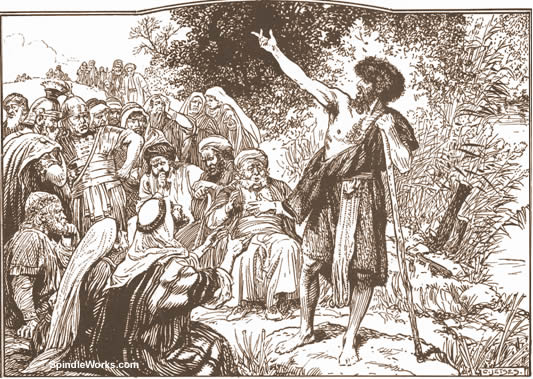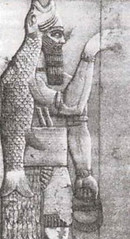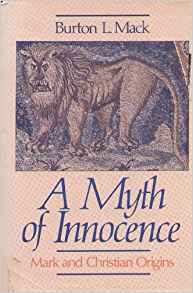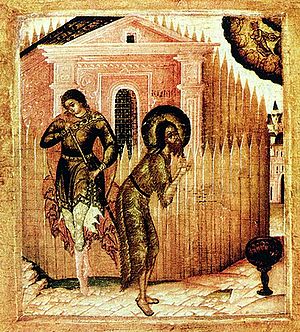For those of us who like to be stimulated with different views on Christian origins, René Salm has translated and made available a 1956 essay by Georges Ory, Was Jesus “John the Baptist”?
This hypothesis reminds me of Robert M. Price’s suggestion that the two figures are doubles, or that Jesus was indeed something of a mythical hypostasis of John. (Unfortunately I forget the source for this discussion now — I welcome a reminder from anyone reading this.) Others — Roger Parvus and Hermann Detering, if I recall correctly, have had thought-provoking views of the role of John the Baptist and Simon Magus.
I’ve had a less “psychological-anthropological” explanation for John the Baptist than Bob Price’s views, and have to admit I have never given enough sustained attention in the past to some of the views of Parvus and Detering. I know I have only covered one dimension of the evidence available — the midrashic literary. I wonder if the motif of a representative of the old, usually metaphorically rough in appearance, as the deliverer of one who ushers in the new creation and new world, is a deeply rooted cultural archetype found from the Epic of Gilgamesh right through to modern fiction and fables.
I may not always come away from reading radical new views being immediately convinced, but rarely do I ever come away without having been stimulated with new questions and avenues to explore.
So who was George Ory? Continue reading “Was Jesus “John the Baptist”?”











